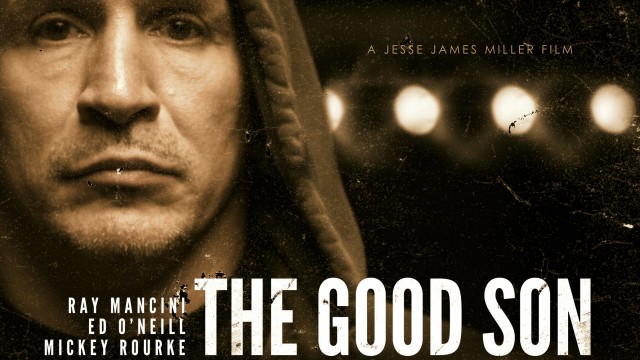By Natalie Mieles
Boom (verb) – to move with a resounding rush or great impetus.
For the former lightweight boxing champion, Ray Mancini, “Boom Boom” not only serves as a nickname, but a synonym of his life. “Boom Boom” can signify the blast his legacy left behind in boxing and the term “Boom Boom” symbolizes the burst of love he had for his father. Mancini had enough ‘boom’ in him to win it all.
But his boxing career didn’t have a picture perfect ending. In a championship fight in Las Vegas in 1982, Mancini met 23-year-old Korean challenger, Duk Koo Kim after winning the World Championship title only six months prior. Mancini was victorious after knocking out Kim in the fourteenth round. What the public saw was just another Mancini win, but in reality there was much more to it. Duk Koo Kim suffered brain damage during the fight and as a result, died four days later. Mancini soon fell into a deep depression, often blaming himself for Kim’s death.
Mancini wasn’t the only one suffering. Kim’s mother killed herself months after her son’s death and the referee of that fateful match, Richard Green, killed himself in 1983—although it is unclear if it was related to Kim’s death.
Now, 31 years later, the 52-year-old is out to redeem his reputation as a fighter and show the public how proud he is to be his father’s son. In his new documentary about his life, “The Good Son,” Mancini lets viewers into the deepest and greatest moments of his life and career. As Mancini says, “It’s the complete story of my life.”
The movie—based off the book of the same name by Mark Kriegel—shows the many roles of Mancini: son, brother, fighter and father—all of which molded him to be the humble, kind-hearted champion he is today.
Mancini said the movie is about growing up in Youngstown, Ohio and wanting to win a championship for his father and city. His father, Lenny, the original “Boom Boom,” got his nickname in 1939 when a promoter said to a writer, “’Look at this guy. He does nothing but keep coming, throwing punches. Boom, boom, boom all the time.’ The next day he was Lenny “Boom Boom” Mancini,” Mancini said. Mancini said his father was the number one lightweight contender in the world in 1942 but was drafted into war before getting a chance at the title.
Growing up, Mancini thought about how his father should have and could have been a world champion if he had fought in a championship match. It’s clear that is what sparked his interest in boxing as a child. “[I wanted to be a boxer] since day one. When I was a little boy people would say, ‘what do you want to be when you grow up?’ and I’d say, ‘I want to be a fighter and world champion for my father,” Mancini said, “Because that’s all I’ve ever known.”
Mancini says although his father never spoke negatively about going to war instead of getting a chance at the title, he could still tell it affected him. “Once and a while he would say, ‘you know Raymond, if I just had that opportunity,’” Mancini said.
Although Mancini was determined to become a World Champion for his father, he says his father actually never wanted him to box. “I told him, ‘dad, I want to win the title for you,” Mancini said. He said another reason he boxed was because organized crime was very prevalent in Youngstown since it’s in the middle of Cleveland and Pittsburgh, two major mob cities. While many turned to organized crime to support their families after the mills closed in Youngstown, Mancini had plans of his own. “Obviously those options were there, but that was not an option for me,” Mancini said.
So, like his father did in his day, Mancini set out for New York. “To achieve my dream and to achieve my goal I had to leave for New York. I wanted to be just like my father. My father left for New York so I’m going to leave for New York,” Mancini said. Mancini was successful and a fan favorite. Then, on May 8, 1982, Mancini defeated lightweight champion, Arturo Frias, by TKO in the first round. While it was a stunning war between two fighters, what was perhaps more meaningful to Mancini was that he became a World Champion for himself and his father that night.
But just six months later, Mancini’s whole life would change at just 21-years-old. Mancini says he was being offered a national soft drink commercial, a national cereal commercial and was going to sign with a national apparel company. But those offers no longer stood after the Kim fight. “I understand that now but at the time I was very hurt,” Mancini said.
Not only did Mancini’s life change, but so did the rules of boxing. The Mancini and Kim fight was set for 15 rounds, but ended with a knockout in round 14. As a result of Kim’s death, the World Boxing Council, the World Boxing Association and World Boxing Organization shortened their title matches to 12 rounds. Although the change is said to have sprouted because of the Mancini/Kim fight, Mancini doesn’t agree with the change. “There’s no medical proof at all to prove more accidents happen in the last three rounds as opposed to the first 12. That was a TV decision, that was not a medical decision,” Mancini said. Mancini also says that contrarily, the last 15-round fight happened four years after the Kim fight, meaning the Kim incident was not the sole purpose of shorter matches. “It was a slow moving train then,” Mancini said. The WBC did not comment on the topic.
Although Mancini continued boxing, he said the fight with Kim took the love he had for boxing away from him. “I had loved the sport, I loved fighting and wanted to be a fighter but after that there was no love in me,” Mancini said. Mancini said he was grateful God had blessed him with a world title. He continued to fight because he felt he owed it to his city of Youngstown and saw it as an opportunity for financial security for his family. Mancini retired in 1985, but returned to the ring to fight Hector “Macho” Camacho in 1989, which he says was four years too late. And for all you fans who were shocked at the result of the Camacho fight, (Mancini lost a controversial split decision) Mancini says he really believes he beat him. Three years later in 1992, Mancini returned to the ring once more. After losing to Greg Haugen, Mancini retired for good.
Today, Mancini has found peace with his past and continues to move forward. “My life’s good. I’m very blessed,” Mancini says. He says his children and business ventures, like a film production company and a new wine company, keep him active. But still, Mancini wants more in life. “I’m not where I want to be, I’m not where I’m going to be, but I enjoy the chase,” Mancini said.
Mancini said his father once told him that a boxer has to enjoy being alone a lot. That proved to be right for Ray. “I get along better with me than with anybody I know,” Mancini said. Mancini also advises upcoming boxers to stay hungry. “That’s the only reason anybody should want to be a fighter, is a chance to be a world champion,” Mancini said
Mancini believes his greatest strength in boxing was his mind. “I didn’t cheat myself and I’m proud of that,” Mancini said. He said he has always been disciplined. “I wasn’t a great fighter, I was a good fighter,” Mancini said, “I had great moments, great fights. But I think my greatest strength is my tenacity, my heart, my desire. That took me a lot farther than my talent did.”
Mancini hopes people who watch the film will learn about his family, his city and why he wanted to be a fighter. Mancini mainly hopes to show the love and relationships between parent and child. “I think it’s a love story between fathers and sons, that’s the most important message,” Mancini says he knows for sure he succeeded at making his father proud of him.
“The Good Son” tells the complete story of an incredible man with a lot of heart and love for his father, the sport of boxing and his city. Mancini said his style of fighting represents his city of Youngstown. “[You] take some shots to get some shots but at the end of the day I’m going to give them what I can,” Mancini said, “[I’ll] take it on the chin but I’m still standing.”
More than 30 years after that fateful fight, Mancini knows he can’t escape the past. But he’d like to be remembered differently. “As a fighter I’d like to be remembered as a guy who gave the fans their money’s worth, always came out fighting [and] put on a good show. I wasn’t a bad fighter either.”
BrickCityBoxing.com would like to thank Ray Mancini for taking the time to talk with us. We would also like to congratulate SnagFilms and director Jesse James Miller on a job well done.
For more information on the film, please visit http://www.snagfilms.com/thegoodson/
For more information on ‘SOUTHPAW, by Ray “Boom Boom” Mancini’ visit L’uva Bella winery at http://www.luvabella.com/southpaw.shtml

The Brick City Boxing Team (Danny Serratelli, Natalie Mieles and Joe Latti) with Ray “Boom Boom” Mancini


